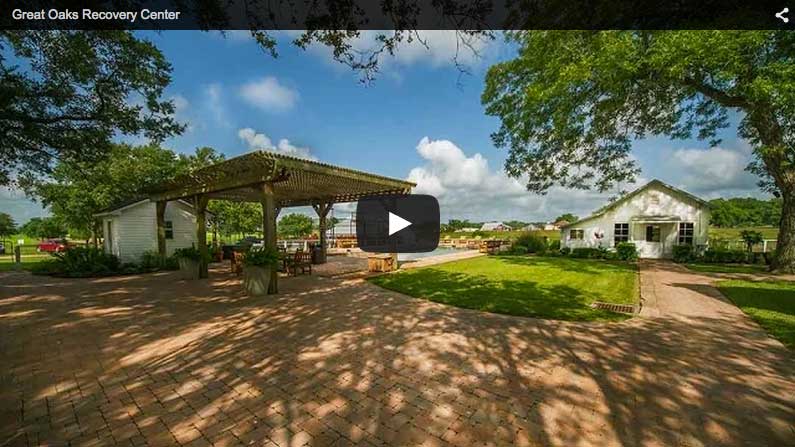 As you research addiction rehabilitation centers, you might discover the phrase “whole-person care.” What exactly does this mean, and why should it matter to you? Here are some points to consider about effective types of addiction treatment services.
As you research addiction rehabilitation centers, you might discover the phrase “whole-person care.” What exactly does this mean, and why should it matter to you? Here are some points to consider about effective types of addiction treatment services.
Blending Addiction Science with Holistic Care
Addiction doesn’t discriminate—it’s a brain disease that impacts people of all ages, cultural backgrounds, and economic status. It affects a person’s entire being, disrupting emotional, mental, physical, and spiritual health. When someone is struggling with addiction, they often exhibit adverse behaviors, jeopardize relationships, compromise themselves financially and legally, and encounter other aspects of chaos.
Classified as substance use disorder (SUD) and alcohol use disorder (AUD), addiction can’t be cured, but it can be well managed in recovery like other chronic medical conditions, such as arthritis, diabetes, and heart and liver disease. The goal of treatment is to provide you with medical guidance in an environment where you can heal and renew your life.
The National Institute on Drug Abuse (NIDA) notes that a strong component of effective addiction treatment is to identify and address the multiple needs of a person, not just their alcohol or drug use—which is a behavioral warning signal indicating much greater issues.
So, a short stint in a rehab center to simply go through detoxification isn’t exactly whole-person treatment. This procedure is exceedingly helpful to reduce the physical-chemical imbalances caused by substance abuse, but it’s often only the start of a comprehensive continuum of care plan for customized treatment.
Whole-person care examines various aspects of an individual’s life and possible addiction risk factors, such as:
- Age and gender
- Ethnicity and cultural background
- Family history of SUD or AUD
- Health status, including current and past physical health issues as well as mental and emotional co-occurring disorders
- Levels of conflict, grief, and stress
- Trauma stemming from traumatic brain injuries, PTSD, abuse of any kind, natural disasters, war zones, and terrorism
- Types of substances used and for how long
- Vocation, such as current or former military personnel
Addiction science professionals conduct a thorough diagnostic process to understand someone’s past and present in order to create a gateway toward a healthier future.
Creating a Whole-Person Framework of Care
Each addiction rehabilitation center with a whole-person care program hosts a team of specialists to address all aspects of mind, body, and spiritual wellness for long-lasting recovery. The point isn’t to “fix what’s broken” but to integrate progressive techniques that not only help you heal, but also teach you how to thrive.
Some components of a multidisciplinary whole-person approach include, but aren’t limited to:
- 12-step programs and other recovery support groups
- Alternative therapies such as animal assistance, art, and recreational activities
- Different types of therapies, such as cognitive behavioral, dialectical, and motivational interviewing
- Holistic modalities such as acupuncture, biofeedback, herbal remedies, and eye movement desensitization and reprocessing (EMDR)
- Individual, family, and group therapy options
- Medication management
- Mindfulness, meditation, and yoga programs
- Nutritional counseling
- Ready-to-work employee programs
- Relapse prevention planning and accessible aftercare
- Spiritual or religious grounding
- Wellness and exercise initiatives
Some methods may resonate with you, while others won’t. The key to effective whole-person care is to explore options that are most meaningful for optimum results.
Choosing the Right Rehab Facility
Choosing to put your health first is a critical decision, and one that requires a lot of research and information. Now that you know more about the benefits of whole-person care, it’s vital to understand what else to look for with residential treatment. Remember: you’re making an investment in your future, so the facility has to be the right fit.
You have every right to ask about practical topics such as:
- Length of stay, such as 30, 60, or 90 days—or a more extended program
- The pros and cons of a residential facility
- Insurance coverage and payment plans
- Personal employment options for extended leave
- Rooming situation, facility guidelines, and additional inpatient expectations
- Structure of a typical day
You also want a clear picture of treatment factors, including:
- Addiction education for residents and their families
- Approach and philosophy of the facility
- Detoxification practices and the need for medication management
- The various types of therapy
- What medical personnel are on site
You should also be assured of an extensive approach to discharge planning.
Proven Whole-Person Care at Great Oaks
Nestled on 50 acres of beautiful Texas countryside just outside of Houston, our addiction rehabilitation facility offers a dedicated, board-certified team united by one mission: treat everyone with dignity and improve the lives we touch by providing healing solutions for mind, body, and spirit.
The professionals at Great Oaks understand that a one-size-fits-all approach to addiction recovery doesn’t produce lasting results. If you or a loved one is ready for individualized whole-person care you can trust, talk with a member of our admissions staff today.


